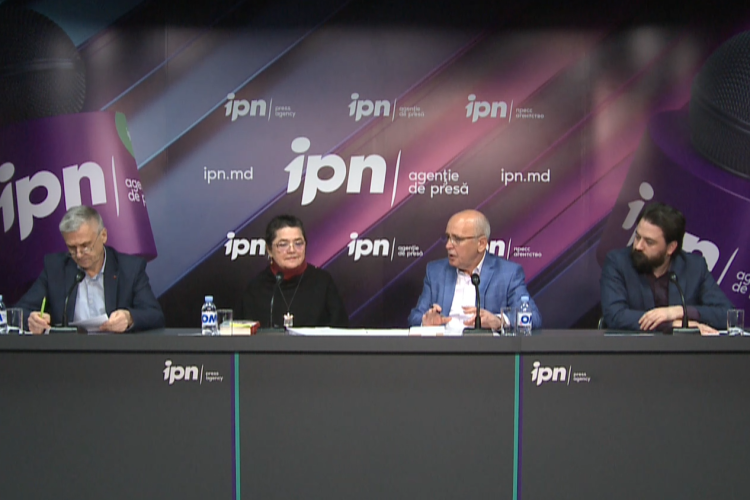
The experts invited to a public debate hosted by IPN brought to the public's attention the subject of the organized famine of 1946-1947, one of the most dramatic pages in the recent history of Moldova. The debate brought together experts from different fields who discussed the goals, authors and evidence of the organized character of this national tragedy, IPN reports.
According to Larisa Turea, author of the book "The Book of Hunger", this period was not only a natural calamity, but also an organized crime planned at the state level. “It took me 40 years of life to complete this work," she said. “The approximately 600 pages contain hundreds of testimonies of survivors, documents from the archives and evidence that outline the picture of a systematic plan of starvation.”
The permanent expert of IPN’s project Igor Boțan stressed that the organized famine was not an accident or a mistake of the government, but a mechanism of mass terror. "The goal was to suppress the reflex of freedom. The peasants were considered raw material for the industrialization and armament of the USSR. Everything was taken away from them so that the state could sell, gather material resources and later bring foreign specialists," he explained, adding that repression by starvation was an instrument applied for several times in Soviet history, including in Russia, Ukraine, Kazakhstan, and Moldova.
From a psychological perspective, the organized hunger was a method of re-education through humiliation, said Ștefan Popov, PhD student in psychology and president of the Center for Scientific Research in Psychology. "A hungry person is an obedient person, devoid of energy and hope. Over time, this person can even become attached to the aggressor, in a phenomenon known as Stockholm syndrome. The whole society has been traumatized," he explained.
In the context of the repressive policy of the 1940s, Larisa Turea remined that more than 100 state decisions on the forced surrender of food products were adopted in 1944–1949. "They passed through villages and took everything, without any criteria. People were selling houses for a sack of beans. In some villages of ATU Gagauzia, up to 80% of the inhabitants died. There were also cases of cannibalism, but history preferred not to keep these details," said the author. She added that among those who survived were "the most empathetic ones, those who helped each other, not those who took the basket of corn from under the head of the dying child."
The organized famine left deep imprints not only on the bodies, but also on the collective consciousness of Moldovans. The repression led to the loss of material and spiritual culture. According to Larisa Turea, "Bessarabia lost its culture. The people became estranged. They lost their faith. A survivor said that only people’s God was a piece of bread in those times."
According to Igor Boțan, the archive documents confirm the organized nature of the tragedy. "In a letter addressed by Molotov to Stalin, it is stated that "grain purchases are the most important", and the peasants – the main resource. The truth about famine had been hidden under full censorship for decades." The expert said: "We now know quite a bit about what happened, but the exact figures will never be known. Officially, it is estimated that 10% of the population died, but it is possible that the number was much higher."
According to Ștefan Popov, the voices of those who know or experienced the consequences of the communist totalitarian regime ask for reflection and responsibility. He stressed the importance of open discussions about these events so that society becomes aware of their seriousness. For his part, Igor Boțan drew attention to the fact that the regimes that promised collective happiness in reality caused deep suffering and the effects of the dissolution of that system are still felt today – that is why the relevant ministries must ensure authentic historical education. Larisa Turea also pleaded for a return to human values and stronger collective actions, stating that a simple national day is not enough and that it is also necessary to open a museum to keep alive the memory of those times. “Only through acknowledgement, solidarity and cultivation of empathy can we build a truly conscious society,” said Larisa Turea.
The public debate entitled "Aims, authors and evidence of the organized famine of 1946-1947" was the 47th installment of the project “Impact of the past on confidence-building and peace-building processes". IPN Agency implements the project with support from the German Hanns Seidel Foundation.












